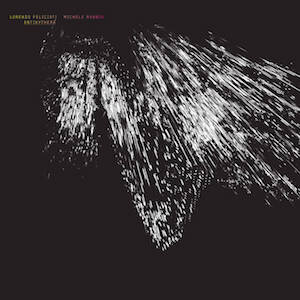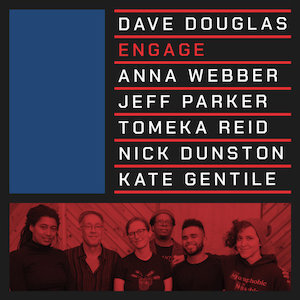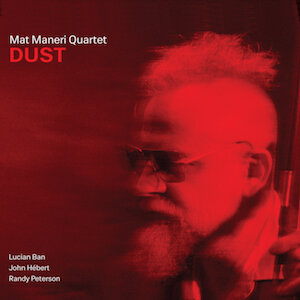Label: Intakt Records, 2019
Personnel - Ellery Eskelin: tenor saxophone; Christian Weber: bass; Michael Griener: drums.
The music on the album The Pearls is occasionally soft and sparse, but the sound emanated by saxophonist Ellery Eskelin, bassist Christian Weber, and drummer Michael Griener can also be magnetically sturdier. It all depends on the context they are playing in, and, in this particular case, if they are creating in the spur of the moment or rendering old-time jazz pieces with a modern flair. In the former case, the music is presented without a specified form or time, while in the latter, there’s a primordial swinging vibrancy and structure associated with the ragtime of Scott Joplin (“Magnetic Rag”), Jelly Roll Morton (“The Pearls”), Count Basie (“Jive at Five”), and Russell Robinson (“Eccentric Rag”), all of them discharging a radiant bliss while having the trio devotedly concentrated on the ‘in the pocket’ factor.
These highly syncopated mainstream manifestations are intercalated with the remaining tunes, which, being spontaneously created, sound more attractive to me due to the unexpectedness in direction, wider latitude, and variation in mood. However, the overall balance and disparate dynamics created by the two stylistic approaches can easily earn adepts from both sides of the spectrum - the free/avant-garde and the early jazz/mainstream.
Highlights in the unrehearsed department include the sublimely crafted “La Fée Verte” and the cutting-edge “Black Drop”, which closes out the album. The former initiates with Weber’s tonally-rich arco techniques (including percussive), which is later joined by Eskelin’s inquisitive and polyphonic phrases, prior to evolve into a bass groove that, shortly afterward, dissolves into freer activity with Griener’s scintillating percussive work assuming a more preponderant role. In turn, the closing piece is born from chimes, successive terse pizzicato bass notes, and functional brushwork, gaining gradual nourishment through a loose-limbed pedal-like groove and Eskelin’s melodic paradoxes. There’s also “Rue Jardiniére”, where the interactive communication between bass and drums is outstanding.
Following the same philosophy and aesthetic of its predecessor, Sensations of Tone, this new record finds the trio exploring common ground with the same commitment and virtuosity that have been defining their musical personalities for years.
Grade B+
Favorite Tracks:
03 - La Fée Verte ► 04 - The Pearls ► 09 - Black Drop








































